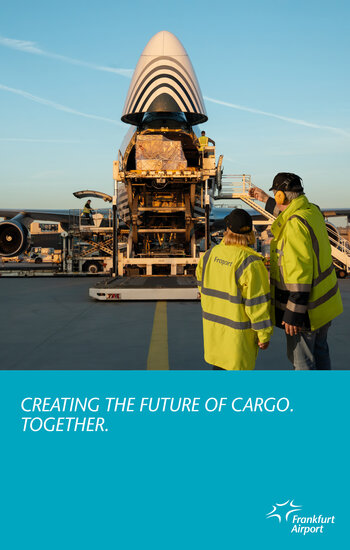Brussels Airport (BRU) can develop e-commerce as another commodity within its strategic focus, but fully digitized customs systems are imperative for it to work. That was one of the conclusions of Air Cargo Belgium’s (ACB) Cargo Talks on Thursday, 20NOV25, covered by CargoForwarder Global.
Almost every conference or symposium in the air cargo industry over the last few years has been partially or entirely dedicated to the booming e-commerce market, and ACB’s Cargo Talks were no exception to the rule.
Roel Gevaers and Vincent Van Bockstael of the University of Antwerp highlighted the results of the study ‘Air Cargo E-Commerce Strategy for Brussels Airport – Market & Insight’, conducted together with Steven Polmans.
According to Gevaers, e-commerce went through an average growth of 14% over the last 9 years, bringing a turnover of USD 5 trillion. China accounts for a volume of 2.8 million tons of which 65% is generated in the Guangdong region. Other products like fashion and apparel items from the industry in and around Zhejiang, are rapidly emerging, but they are not yet airfreighted to Brussels Airport due to missing network connections.

New platforms emerging
To comprehend the superfast penetration of e-commerce in the consumer market, Vincent Van Bockstael demonstrated that Temu surpassed Zara as the world’s most popular fashion brand, almost overnight. Temu, as well as Ali Express and Shein, show huge growth rates, and Tik Tok Shopping has recently been launched in the UK and France. This suggests a further increase in e-commerce flows from China to Europe.
In a nutshell: These are the key takeaways of the study presented by Van Bockstael: China remains the primary engine for e-commerce; electronic platforms and marketplaces will increasingly dominate e-commerce logistics; digital data harmonization is becoming critical for future growth and, as far as Brussels Airport is concerned, the reliance on only a few carriers makes the flow of goods very risky, due to the concentration of capacity providers.
Brussels Airport has to adapt to the changing market
Even so, in the low-value segment, Brussels Airport is no match for Liège Airport, as e-commerce is only one of many commodities processed there, alongside live animals, perishables or pharmaceuticals, said Pieter April, Brussels Airport’s Cargo Business & Network Development Manager. According to Peter April, the import volumes from China have risen by 30% over the last few years. “Currently, we have 29 flights from China, but we are interested in connectivity to regions in which we are not present yet.”

So, the crux of the matter is to adapt the airport to the changing demand, manager April explained. “Apart from getting sufficient imports, we have to boost exports as well, to fill the return flights. We are also optimizing our infrastructure to realize our ‘100 minutes airport’: improving speed, transparency, reliability and digitization to gain and share insights.”
Full digitization is imperative
Both Gevaers and April participated in a panel discussion moderated by Transport Economist, Prof. Wouter Dewulf of the University of Antwerp and C-MAT (Centre for Maritime and Air Transport). The other debaters were Wendy Luo, Sales Leader/HEC Paris EMBA/E-Commerce/Supply Chain Bpost, and Bert Selis, VP BD Freight Forwarding & E-Commerce Handling WFS.
Speaking from daily practice, WFS executive, Selis, acknowledged that, in Brussels, B2B is shifting away, whereas B2C is expanding considerably. “Yet, sustainable growth is not easy to match with e-commerce and major changes are coming up. Flows can shift very fast,” he stated. Bert went on to say: “Speed is defined by the flow of digital data. Every month, Temu monitors the check-in processes of their consignments everywhere, and they do not really care about your airport. That should be a trigger for Brussels Airport. Fully digitized customs is the most important milestone for Brussels Airport to take between today and 5 years from now.”
Wendy Luo of BPostgroup stressed the fact that, for Asian companies, connected data that can be shared and thus allow full visibility, is of the greatest importance. “There is not sufficient connectivity between the shareholders,” she said.
Awards
At the ACB Awards ceremony with which the event was concluded, the Customs Administration was granted the Impact Award. In his words of thanks, Regional Director, Bart Vleugels said that digitization was extremely important for the Administration, especially since the EU is putting a lot of pressure on the actors to comply with new regulations.Swissport’s Peter Gysen, dnata’s Johan Rlsier, and Road Air Cargo’s Jan Van Bremt received the title ‘Ambassador of the Year’. Lufthansa Cargo was ‘Airline of the Year’, WFS ‘Ground Handler of the Year’, Jan de Rijk ‘Trucker of the Year’, EV Cargo ‘Forwarder of the Year’, while Ninatrans was awarded ‘Highflyer of the Year’ for its commitment to the air cargo community and ACB.





